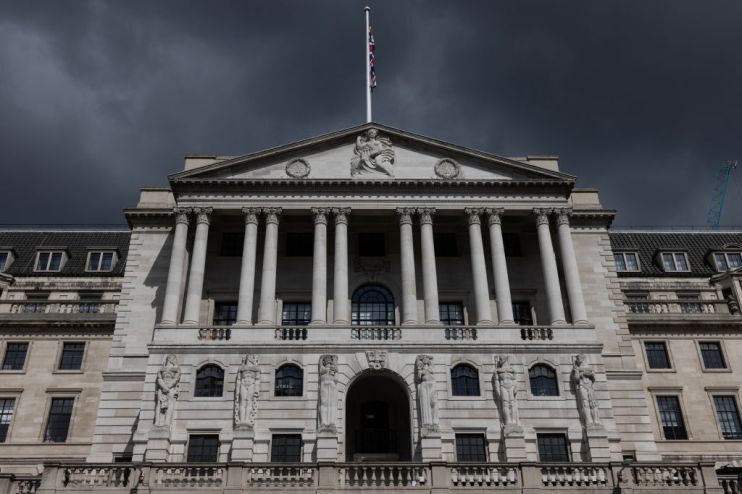Inflation drops below five per cent in boost for Bank of England and Sunak

Inflation fell faster than expected in October thanks to falling energy prices, giving a boost to the Bank of England and Prime Minister Rishi Sunak.
According to figures from the Office for National Statistics (ONS), the consumer price index (CPI) came in at 4.6 per cent in October, down from 6.7 per cent the month before.
Economists had expected inflation would fall to 4.7 per cent in October.
“Inflation fell substantially on the month, as last year’s steep rise in energy costs has been followed by a small reduction in the energy price cap this year,” ONS chief economist Grant Fitzner said.
“Food prices were little changed on the month, after rising this time last year, while hotel prices fell, both helping to push inflation to its lowest rate for two years,” Fitzner continued.
The largest contribution to monthly fall in inflation came from energy costs. Gas prices fell by 31 per cent in year to October, compared with a rise of 1.7 per cent in September. This was the lowest rate since records began in 1989.
Electricity costs meanwhile fell by 15.6 per cent, compared to a 6.7 per cent rise in September.
This dramatic drop is largely driven by changes to Ofgem’s price cap. In October last year, energy bills were frozen at £2,500 after Russia’s invasion of Ukraine sent energy prices spiralling.
Since then prices have fallen fast. In October this year, Ofgem lowered the price cap to £1,834, still relatively high but significantly lower than last year.
The ONS noted that gas and electricity prices remain higher than two years ago.
Core inflation – which excludes volatile components such as food and energy – rose by 5.7 per cent in the year, down from 6.1 per cent last month. Analysts suggested it would fall to 5.8 per cent.
Services inflation, which the Bank of England has identified as a key indicator of homegrown inflation, eased to 6.6 per cent from 6.9 per cent. The Bank forecast that services inflation would remain near seven per cent for the remainder of the year.
The sharp fall means Sunak is all but certain to meet his target of halving inflation by the end of the year. It stood at just over 10 per cent at the beginning of the year.
The numbers will also be a boost to the Bank of England, likely convincing investors that it won’t hike rates again in its December meeting.
Although the Bank has left interest rates on hold for two consecutive meetings, members of the Monetary Policy Committee (MPC) have been warning that more needs to be done to tackle inflation.
In its November Monetary Policy Report, the Bank forecasted that inflation would remain above its target until the end of 2025. The MPC said that monetary policy needed to be “restrictive for an extended period of time”.
Inflation is expected to remain stubborn over 2024 due to a strong labour market. Figures out yesterday showed that wages continued to rise at near-record levels, although the rate of increase had eased slightly.
Geopolitical concerns may also derail the fight against inflation.
Mark Taheny, Senior Director at corporate finance advisor Centrus, warned the figures were at risk of being sent one way or the other by events well outside of the Bank’s control.
“Geopolitical factors will continue to play a huge role in the energy market so businesses must be wary of potential shocks in coming months. As commodity prices are more volatile than ever, they are becoming increasingly headline dependent, leading to a growing anticipation that we are one bad headline away from a significant daily move,” he said this morning.